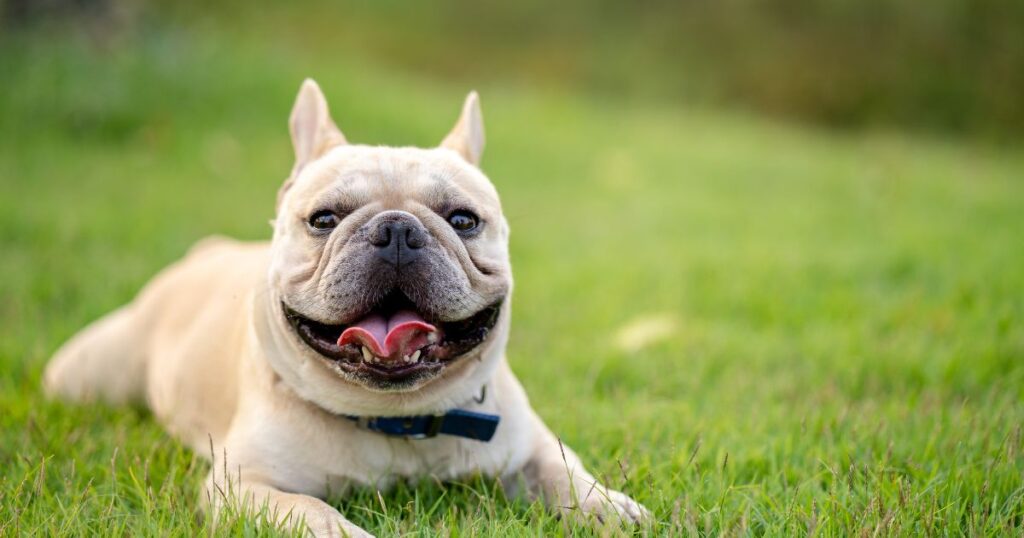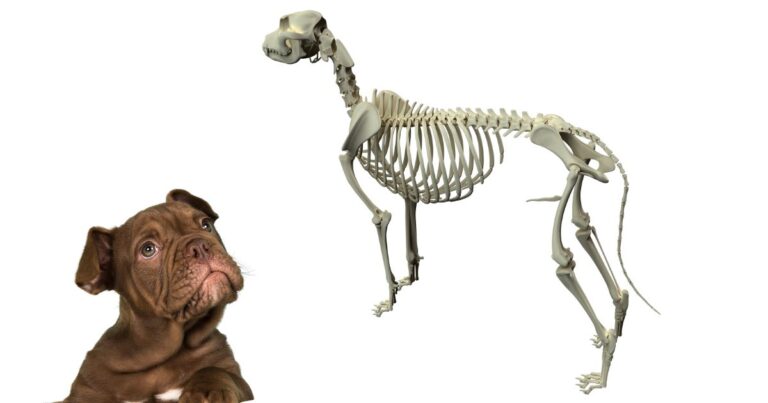French Bulldog Obesity and Weight Management
Table of Contents
French Bulldog Obesity and Weight Management
| Factors | Description |
|---|---|
| Diet | A balanced diet is crucial for maintaining a healthy weight. Avoid overfeeding and limit treats. |
| Exercise | Regular, moderate exercise can help keep your Frenchie fit. Aim for at least 30 minutes of activity a day. |
| Regular Check-ups | Regular vet check-ups can help monitor your Frenchie’s weight and catch any potential issues early. |
| Mental Stimulation | Interactive toys and food puzzles can slow down eating and provide mental stimulation. |
Is your Frenchie more fluff than buff? French Bulldog obesity and weight management is no laughing matter, but it’s a journey we can embark on together. Let’s explore how to keep our adorable Frenchies fit, healthy, and ready for endless belly rubs!

Introduction
Have you ever looked at your adorable Frenchie and wondered if they’re just a bit too plump? It’s easy to overlook a few extra pounds on our beloved pets, especially when those puppy dog eyes are begging for just one more treat. But French Bulldog obesity and weight management are serious matters that can significantly impact your pet’s health and quality of life. Let’s delve into this topic and explore how we can ensure our French Bulldogs maintain a healthy weight.
The road to a healthier Frenchie isn’t always easy, but the wagging tail and extra playtime make it all worth it
Things to Avoid When Managing Your Frenchie’s Weight
- Quick Weight Loss Diets
- Over-exercising
- Feeding Human Food
- Ignoring Vet Advice
- Neglecting Regular Check-ups
Understanding Obesity in French Bulldogs
First things first, let’s talk about what obesity in French Bulldogs – or Frenchies, as we affectionately call them – actually means. Obesity is defined as an excess of body fat that is enough to impair health, welfare, and quality of life. In French Bulldogs, this often means a weight that is 20% or more above the ideal weight for their size and breed. It’s important to remember that each Frenchie is unique, and what might be overweight for one could be perfectly healthy for another.
The Causes: Overfeeding and Lack of Exercise
You might be surprised to learn that the main causes of obesity in French Bulldogs are pretty similar to humans – overfeeding and lack of exercise. Frenchies are known for their love of food, and it’s easy to give in to those pleading eyes and feed them a little extra. But those extra calories can quickly add up, leading to weight gain. Similarly, while French Bulldogs aren’t the most active breed, they still need regular exercise to burn off calories and stay fit. A sedentary lifestyle can contribute to obesity in Frenchies.
Causes of Obesity in French Bulldogs
- Overfeeding
- Lack of Exercise
- Sedentary Lifestyle
- Overreliance on Treats
- Underlying Health Issues

The Risks of Obesity
Obesity isn’t just about looks; it can lead to serious health problems for our Frenchies. Overweight dogs are at a higher risk of developing conditions like diabetes, heart disease, and arthritis. They may also have a shorter lifespan compared to their lean counterparts. Obesity can also exacerbate breed-specific health issues in French Bulldogs, such as breathing difficulties due to their brachycephalic (short-nosed) nature. It’s clear that maintaining a healthy weight is crucial for our Frenchies’ overall health and well-being.
Common Health Risks Associated with Obesity in French Bulldogs
| Health Risks | Description |
|---|---|
| Diabetes | Obesity can increase the risk of diabetes, a condition that affects the body’s ability to regulate blood sugar. |
| Heart Disease | Excess weight can put strain on the heart, leading to heart disease. |
| Arthritis | Extra weight can put pressure on joints, leading to arthritis. |
| Breathing Difficulties | Obesity can exacerbate breathing difficulties, a common issue in French Bulldogs due to their brachycephalic nature. |
Recognizing Obesity in Your Frenchie
So, how can you tell if your Frenchie is becoming obese? It’s not always as simple as stepping on a scale. You’ll need to look at their body shape and feel their ribs. In a healthy Frenchie, you should be able to feel the ribs easily under a thin layer of fat. Their waist should be clearly visible when viewed from above, and their belly shouldn’t hang down when viewed from the side. If you’re unsure, it’s always best to consult with a vet.
Recognizing Obesity in Your Frenchie
| Signs | Description |
|---|---|
| Body Shape | In a healthy Frenchie, you should be able to feel the ribs easily under a thin layer of fat. |
| Waistline | Their waist should be clearly visible when viewed from above. |
| Belly | Their belly shouldn’t hang down when viewed from the side. |

Preventing Obesity
Preventing obesity in our Frenchies starts with their diet – what we feed them matters a lot. A balanced diet that’s appropriate for their age, size, and activity level is crucial. Avoid overfeeding your Frenchie and limit the number of treats you give them. Remember, treats should make up no more than 10% of your dog’s daily calorie intake. It’s also a good idea to measure your Frenchie’s food using a measuring cup to ensure you’re not overfeeding them.
Just like us, French Bulldogs need regular exercise to stay fit and healthy. While they’re not the most active breed, they still enjoy short walks and playtime. Aim for at least 30 minutes of exercise a day, but remember to adjust this based on your Frenchie’s age, health, and tolerance levels. Always avoid exercising your Frenchie in hot weather to prevent overheating, a common issue in this breed.
Tips for Preventing Obesity in French Bulldogs
- Feed a Balanced Diet
- Regular Exercise
- Limit Treats
- Regular Vet Check-ups
- Mental Stimulation

Tips for Managing Your Frenchie’s Weight
Now that we’ve covered the basics, let’s dive into some practical tips for managing your Frenchie’s weight. First, regular weigh-ins can help you keep track of any changes in your dog’s weight. You can do this at home or during regular vet check-ups. Second, consider using interactive toys or food puzzles to slow down your Frenchie’s eating and provide mental stimulation. Finally, be consistent with your Frenchie’s diet and exercise routine. Remember, weight management is a lifelong commitment, not a one-time thing.
Tips for Managing Your Frenchie’s Weight
| Tips | Description |
|---|---|
| Regular Weigh-ins | Regular weigh-ins can help you keep track of any changes in your dog’s weight. |
| Interactive Toys | Consider using interactive toys or food puzzles to slow down your Frenchie’s eating. |
| Consistent Routine | Be consistent with your Frenchie’s diet and exercise routine. |
Remember, every Frenchie is unique, and what works for one might not work for another. Always consult with a vet before making any major changes to your Frenchie’s diet or exercise routine.
Conclusion
Keeping our French Bulldogs healthy and at a proper weight might seem challenging, but with these tips and a bit of dedication, it’s definitely achievable. Remember, every Frenchie is unique, and what works for one might not work for another. Always consult with a vet before making any major changes to your Frenchie’s diet or exercise routine.
Benefits of Maintaining a Healthy Weight in French Bulldogs
- Improved Mobility
- Lower Risk of Health Issues
- Increased Lifespan
- Better Quality of Life
- More Energy for Playtime
Call to Action
For more tips and advice on French Bulldog health and care, check out our Health and Care category. If you’re interested in learning more about specific French Bulldog health issues, our article on French Bulldog health issues is a great resource.
Please have a look at the related posts: French Bulldog Breathing Problems and French Bulldog Dental Health.
Disclaimer: This article is intended for informational purposes only. It is not a substitute for professional veterinary advice, diagnosis, or treatment. Always seek the advice of your veterinarian with any questions you may have regarding your pet’s health.
Frequently Asked Questions
How can I help my French Bulldog lose weight?
You can help your French Bulldog lose weight by feeding them a balanced diet, ensuring they get regular exercise, and monitoring their weight regularly. It’s also important to limit treats and avoid overfeeding.
What weight is obese for a French Bulldog?
Obesity in French Bulldogs is typically defined as a weight that is 20% or more above the ideal weight for their size and breed. However, each Frenchie is unique, so it’s always best to consult with a vet.
What is the ideal weight for a French Bulldog?
The ideal weight for a French Bulldog typically ranges between 16-28 pounds for males and 16-24 pounds for females. However, each Frenchie is unique, and their ideal weight can vary based on factors like age, size, and overall health.
What is the fastest way for a dog to lose weight?
The fastest way for a dog to lose weight is through a combination of a balanced diet and regular exercise. However, it’s important to remember that weight loss should be gradual and healthy, not rapid and drastic.
What is the healthiest diet for a French Bulldog?
The healthiest diet for a French Bulldog is a balanced one that includes high-quality protein, healthy fats, and a variety of fruits and vegetables. It’s also important to ensure they’re getting the right amount of calories for their size, age, and activity level.
Is 15kg heavy for a French Bulldog?
A weight of 15kg (or about 33 pounds) could be considered heavy for a French Bulldog, as they typically weigh between 16-28 pounds. However, each Frenchie is unique, and their healthy weight can vary.
Are French bulldogs prone to obesity?
Yes, French Bulldogs can be prone to obesity due to their love of food and relatively low exercise needs. This makes it especially important to monitor their diet and ensure they get regular exercise.
What does an overweight French Bulldog look like?
An overweight French Bulldog may have a visibly round body, with no visible waistline when viewed from above. You may also not be able to feel their ribs easily under a layer of fat.
How can pet obesity be fixed?
Pet obesity can be addressed through a combination of diet, exercise, and regular vet check-ups. It’s important to feed your pet a balanced diet, ensure they get regular exercise, and monitor their weight regularly.
What do you feed an obese dog?
An obese dog may benefit from a diet that’s lower in calories but still nutritionally balanced. It’s also important to measure their food to avoid overfeeding and limit treats.
How can I treat my overweight dog at home?
You can treat your overweight dog at home by feeding them a balanced, calorie-controlled diet, ensuring they get regular exercise, and monitoring their weight regularly. It’s also important to consult with a vet for guidance and to rule out any underlying health issues.
Further Reading
French Bulldogs differ to other dogs in the UK in propensity …






